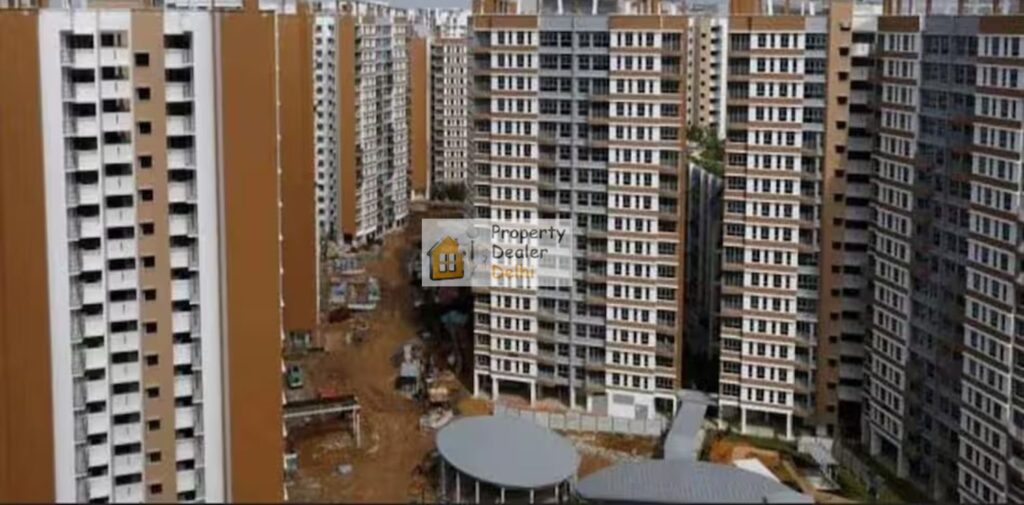
Delhi, as India’s capital, is a hub of growth and development. Its real estate market is dynamic and constantly evolving, influenced by various economic, political, and social factors. Whether you’re a homebuyer, investor, or renter, understanding Delhi Real Estate Cycles can help you make informed decisions about when to buy, sell, or rent property. Real estate cycles in Delhi, like in any other city, typically follow patterns of boom, slowdown, and recovery. By recognizing these cycles, you can time your decisions to get the best deal possible.
The Real Estate Cycle in Delhi
The real estate market in Delhi can be divided into four primary phases: recovery, expansion, contraction, and recession. Each phase has its own set of characteristics and timing. Typically, these phases last anywhere from a few months to a few years. The timing of these phases depends on various factors like demand, supply, economic conditions, and government policies.
In the recovery phase, property prices tend to stabilize after a period of decline, attracting buyers who see it as an opportunity to invest at lower prices. The expansion phase follows, where property prices begin to rise due to an increase in demand, driven by economic growth, infrastructure development, and higher investor interest. As the market enters the contraction phase, prices start to plateau or decline slightly due to factors like oversupply or reduced demand. Finally, the recession phase occurs when there’s a significant drop in property prices, often due to economic challenges or oversupply.

When to Buy Property in Delhi
Buying property is a significant decision, and timing it right can save you a lot of money. The best time to buy property in Delhi is typically during the recovery or early expansion phases of the real estate cycle. During the recovery phase, property prices are more affordable, and there’s less competition in the market. This is an excellent time for first-time homebuyers or investors looking for value deals. As the market shifts towards expansion, property prices begin to rise, but if you act quickly, you can still find reasonable deals before the prices climb too high.
It’s essential to keep an eye on key factors such as infrastructure development, government policies, and market trends when considering a property purchase. Areas in Delhi that are witnessing new metro stations, expressways, or commercial developments usually experience increased demand, which can lead to price appreciation. If you’re considering buying property, look for such areas where the potential for future growth is high.
When to Sell Property in Delhi
Selling property in Delhi should ideally be done during the expansion phase of the real estate cycle. This is when property prices are at their peak, and sellers can get the maximum return on their investment. The demand for properties is high during this phase, and buyers are willing to pay a premium for well-located homes or offices. If you’re thinking about selling, the expansion phase is the most lucrative time to do so.
However, if you are looking to sell during a contraction or recession phase, it’s important to be realistic about the property’s value. In these phases, prices tend to stabilize or fall, and it might be more challenging to sell at a profit. If selling is necessary during these phases, consider making improvements to the property or highlighting its unique features to attract buyers.
When to Rent Property in Delhi
Renting a property in Delhi can be a smart move, particularly if the real estate market is going through a contraction or recession phase. During these phases, property prices are more likely to be lower, and the supply of rental properties tends to increase, providing renters with more options at affordable rates. Moreover, if you’re not ready to commit to buying a property or if you’re not sure about which area to invest in, renting offers flexibility.
On the other hand, during the expansion phase, rental prices tend to increase due to higher demand. While it’s still possible to rent in such times, expect to pay more for properties in prime areas. However, if you’re looking for a temporary living arrangement or for a property in an emerging locality, expansion phases might also offer new rental opportunities.

How to Identify the Right Time to Act
Understanding when to buy, sell, or rent requires careful observation of market trends and economic indicators. In Delhi, the real estate market can be affected by several factors, such as the development of infrastructure projects, changes in interest rates, and government initiatives like affordable housing schemes. Keeping track of these factors can give you an idea of where the market is headed.
For instance, if the Delhi government announces a new metro line or the construction of a business hub in a particular locality, you can expect the demand for property in that area to rise. Similarly, if interest rates are lowered or if there are incentives for homebuyers, it could be a sign that it’s a good time to buy. Conversely, if property supply exceeds demand or there’s economic uncertainty, it might be best to wait before making a move.
Conclusion: Delhi Real Estate Cycles
The Delhi real estate market offers many opportunities for those looking to buy, sell, or rent property, but understanding the cycles of the market is crucial for making smart decisions. Whether you’re looking to invest in a home, sell your property at the right price, or find a rental deal, paying attention to the real estate cycle can help you time your actions better. By considering factors like infrastructure growth, economic conditions, and market trends, you can make informed choices that align with your financial goals. With proper research and understanding, navigating Delhi’s real estate cycles can lead to significant benefits and better investments.

